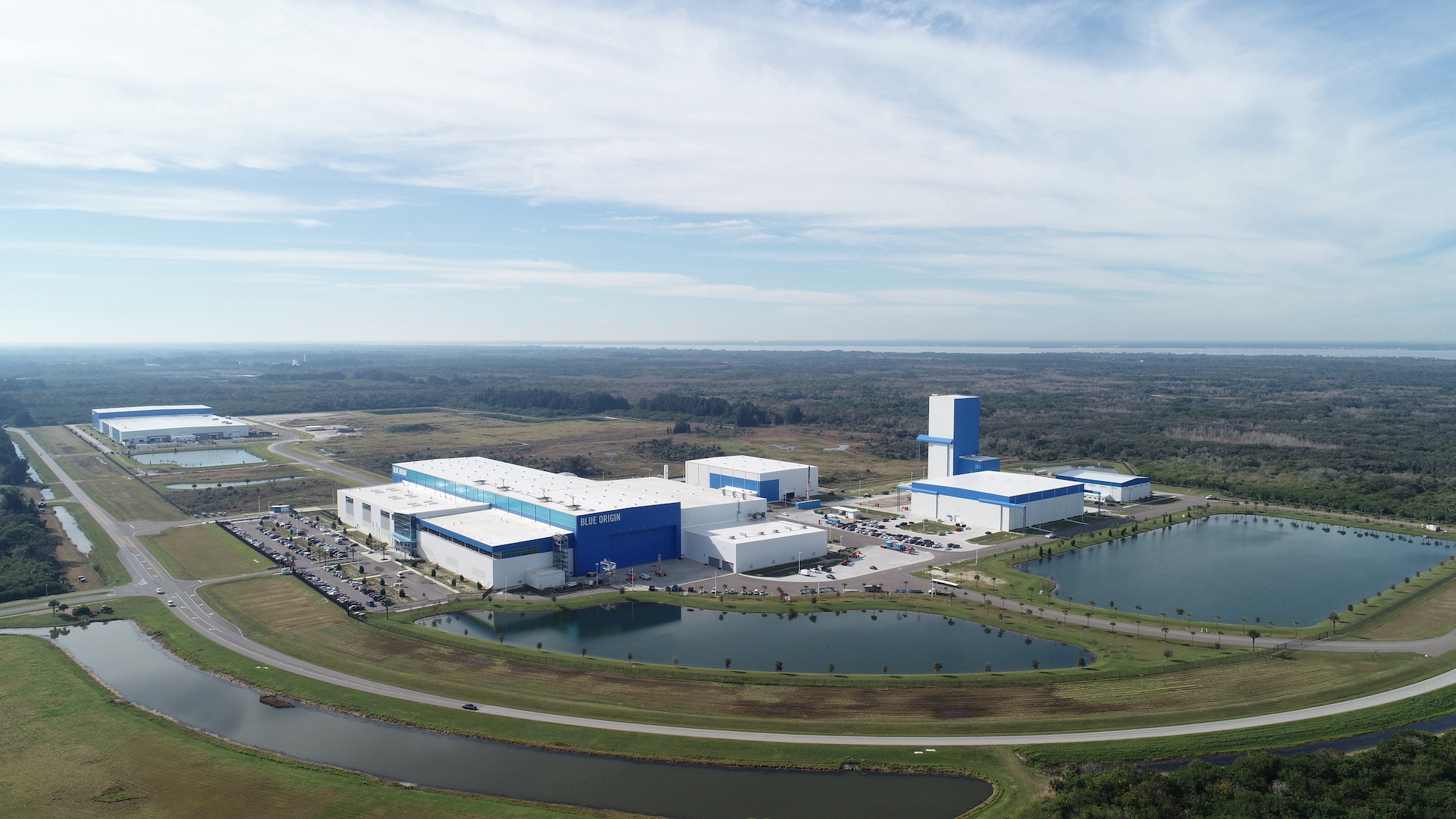The rocket cargo project will explore the military utility, performance and cost of transporting cargo and people on commercial rockets
WASHINGTON — Blue Origin has signed a cooperative agreement with the U.S. military to explore the possibility of someday using its rockets to transport cargo and people around the world.
A cooperative research and development agreement known as a CRADA was signed Dec. 17 with Blue Origin, a U.S. Transportation Command spokesman said Dec. 29.
U.S. TRANSCOM oversees global military logistics operations. The command last year signed similar agreements with SpaceX and with Exploration Architecture Corp. (XArc). Blue Origin is the third company to ink a CRADA for the rocket cargo program.
Under CRADAs, companies agree to share information about their products and capabilities but the government does not commit to buying anything. U.S. TRANSCOM’s analysis of industry data will inform the newly created “rocket cargo” program led by the Air Force Research Laboratory and the U.S. Space Force. The Air Force in its budget proposal for fiscal year 2022 is seeking $47.9 million to conduct studies and rocket cargo demonstrations.
The rocket cargo project will use modeling and simulations to analyze the military utility, performance and cost of transporting loads on commercial rockets and air dropping cargo payloads.
“Not every operation will call for logistics through space, but when we need to respond faster, or assure access in challenging environments, we recognize that space now offers a toolkit, not just a concept,” said Vice Adm. Dee Mewbourne, deputy commander of U.S. TRANSCOM.
“We want our understanding of space transportation’s potential to keep pace with the technical and operational realities that are being built now,” he said.
In March 2020, U.S. TRANSCOM signed a CRADA with SpaceX to investigate the use of using SpaceX’s commercial space transportation capabilities to expedite global delivery of DoD materiel and personnel. In April 2020, it signed a CRADA with XArc (Exploration Architecture Corporation) to advise the command on the conditions needed to utilize commercial spaceports.
Blue Origin operates a suborbital New Shepard reusable launch vehicle for space tourism and is developing a heavy-lift orbital launch vehicle called New Glenn with a reusable first stage. Reusable stages and capsules that deploy parachutes to land space tourists are among the technologies that would be needed to do point-to-point cargo deliveries.
The company has yet to fly New Glenn and is projecting a late 2022 debut pending successful completion of the development of the BE-4 engines. Seven BE-4s will power Blue Glenn’s first stage.
